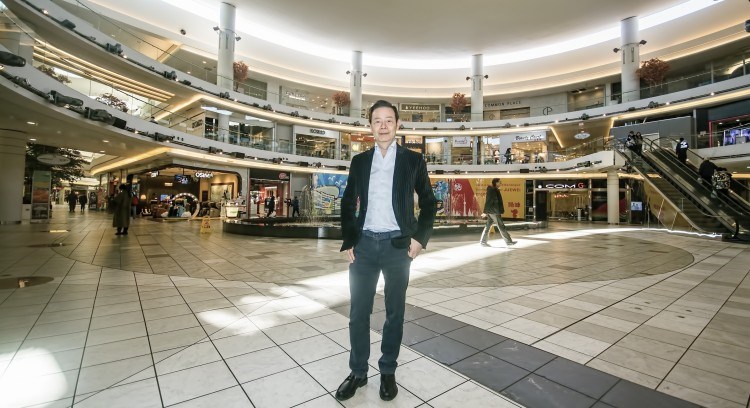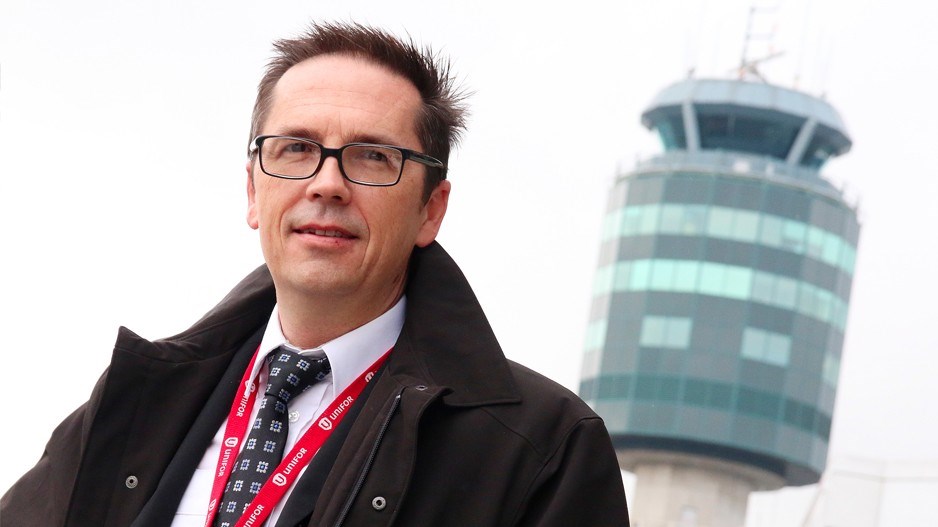Aviation sector insiders worry that there are a significant number of business executives who plan to continue to use Zoom and other video-conferencing software instead of flying to meet contacts even after most British Columbians are vaccinated and travel restrictions ease.
Any continued drop in business travel will keep airlines from reinstating cancelled routes and increasing frequency on active routes, said Sauder School of Business adjunct professor of aviation John Korenic.
Vancouver-based Duer CEO Gary Lenett, who has stores in Vancouver, Toronto, Calgary and Denver, told BIV that he expects to travel less after the pandemic than he did before.
Fairchild Group owner Thomas Fung, however, is eager to return to his routine of frequent travel to Asia.
“Lots of crucial meetings are pending, as all new projects require the principals meet face-to-face,” Fung told BIV. “Body language is important to establish personal relationships and trust. Therefore, no new projects can be finalized before a physical chat.”

(Image: Fairchild Group owner Thomas Fung stands at his Aberdeen Centre in Richmond in March 2020, just before restrictions related to COVID-19 went into effect | Chung Chow)
Korenic stressed that airlines need to fill business-class seats for routes to be profitable.
He said that executives more frequently travel in business class seats than do leisure travellers, which means that if business travellers fly less, inactive routes could stay cancelled and active routes could be cancelled.
Leisure travellers who want to fly non-stop to destinations will also be affected. If non-stop routes are cut, leisure travellers are more likely to select different non-stop routes than fly to previously chosen destinations via stopovers, Korenic suggested.
Executives who need to travel to smaller centres, such as Kamloops or Prince Rupert, where Air Canada (TSX:AC) has suspended flights, may opt to travel via private jets.
U.S. private jet venture Jet It recently launched in Canada, and the London Drugs subsidiary London Air Services (LAS) has long offered jet travel by the hour to executives.
“The combination of unavailability of commercial flights and unreliability of existing flights during the pandemic has driven customers to the reliability that LAS offers,” LAS told BIV in an email.
“We have seen significant increase in new clients.”
But Korenic said the price tag for private jets runs into the thousands of dollars per hour, and is out of the price range for most executives.
In the near term, he expects airlines to lower fares to entice passengers.
“Premium-economy seating could become even more attractive,” he said.
Korenic suggested that airlines might increase premium economy seating and reduce economy seating if planes stay less filled.
Demand for premium economy seats may be driven by customers concerned about viruses, who want more physical space between them and other travellers, he said.
“There’s a lot of pent-up demand for travel,” he said. “People might think that when they go to Europe [for leisure travel,] because they have not travelled for a while, they will want the degree of comfort that premium-economy offers.”
Both Seattle International Airport and Vancouver International Airport (YVR) saw drops in passenger counts of about 78% in 2020, so YVR has not lost ground as a major regional hub for international travel, according to Korenic, who had thought that drop in Seattle’s passenger count would not be as steep as Vancouver’s was, because more of Seattle’s flights are domestic, and domestic travel has not plunged as much as international travel.
He doubts that passenger volumes will return to 2019 levels until at least 2024.
A key component of getting the airline industry back on its feet is a government-assistance program, said Barret Armann, president of Unifor Local 7378, which represents 451 laid-off Sunwing Vacations pilots.
“It’s at the point where other airlines in the world have been bailed out, or have received assistance packages, but ours haven’t," he said.
"If people would like to travel again and not be on a train or a bus, this is extremely important.”
Armann added that a faltering airline sector would mean fewer routes within Canada – something that could hurt the country culturally by encouraging Canadians to think more regionally and limiting exposure to perspectives of people in other parts of the country.
Canadians might also increasingly fly on U.S. carriers that have received government bailouts and are therefore able to offer cheaper flights than their Canadian competitors.
Armann said a shift to travel on U.S. carriers could deliver an insurmountable blow to Canadian airlines. •




